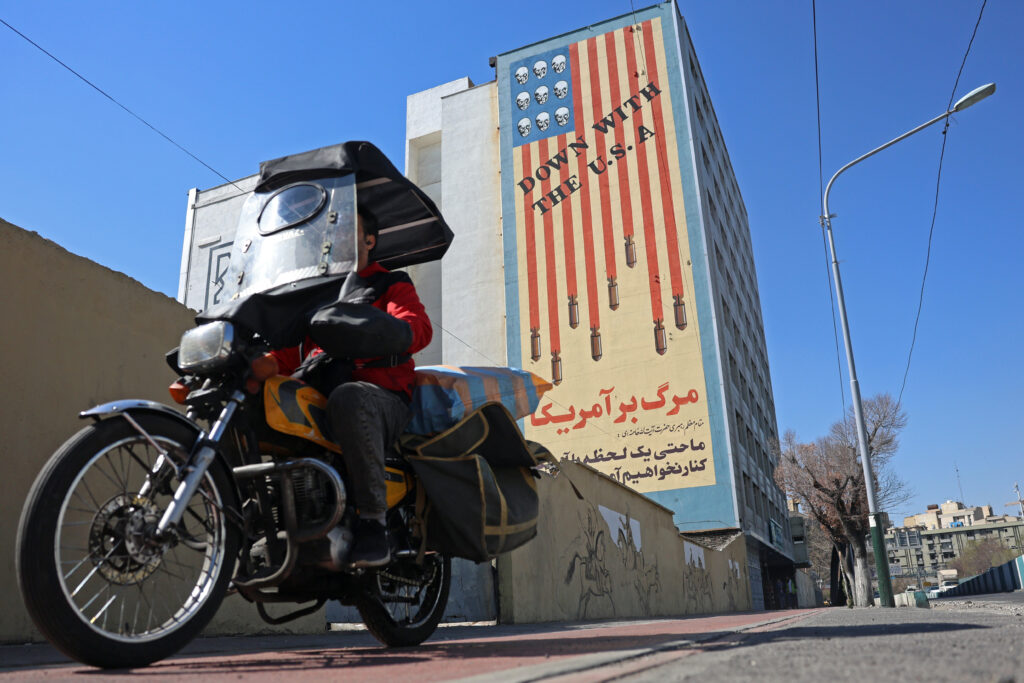AFP Asia Business
Iran urges US to drop ‘excessive demands’ to reach deal
Iran said Friday that in order to reach a deal, the United States will have to drop its “excessive demands”, tempering the optimism expressed after talks seen as a last-ditch bid to avert war.The Oman-mediated talks follow repeated threats from President Donald Trump to strike Iran, and with the United States conducting its biggest military build-up in the region in decades.Trump on February 19 gave Iran 15 days to reach a deal, and while Iran has insisted the discussions focus solely on its nuclear programme, the US wants Tehran’s missile programme and its support for militant groups curtailed.The Wall Street Journal reported on Thursday that Trump’s negotiating team would demand that Iran dismantle its three main nuclear sites and hand over all its remaining enriched uranium to the United States.Without specifying what demands he was referring to, Iran’s Foreign Minister Abbas Araghchi on Friday told his Egyptian counterpart that “success in this path requires seriousness and realism from the other side and avoidance of any miscalculation and excessive demands”.Following the talks in Geneva on Thursday, Araghchi told state TV that the negotiations “made very good progress and entered into the elements of an agreement very seriously, both in the nuclear field and in the sanctions field”.He said the next round would take place in “perhaps less than a week”, with technical talks at the UN’s nuclear agency to begin in Vienna on MondayOmani Foreign Minister Badr Albusaidi also announced technical discussions were to be held next week in Vienna.”We have finished the day after significant progress in the negotiation between the United States and Iran,” he said in a post on X.Araghchi, in a post on X, called the latest round of talks “the most intense so far”.”It concluded with the mutual understanding that we will continue to engage in a more detailed manner on matters that are essential to any deal — including sanctions termination and nuclear-related steps,” he wrote.UN nuclear chief Rafael Grossi joined the negotiations, a source close to the talks told AFP.- ‘Big lies’ -US President Donald Trump said in his State of the Union address that Iran had “already developed missiles that can threaten Europe and our bases overseas, and they’re working to build missiles that will soon reach the United States of America”.He also accused Iran of “pursuing sinister nuclear ambitions”, though Tehran has always insisted its programme is for civilian purposes.The accusations were delivered in the same forum in which then-president George W. Bush laid out the case for the invasion of Iraq in 2003.The Iranian foreign ministry called these claims “big lies”.On Wednesday, US Secretary of State Marco Rubio said on Wednesday that Iran is “not enriching right now, but they’re trying to get to the point where they ultimately can”, adding that Tehran “refuses” to discuss its ballistic missile programme and “that’s a big problem”.Iran’s President Masoud Pezeshkian insisted ahead of the talks that the Islamic republic was not “at all” seeking a nuclear weapon.US Vice President JD Vance told the Washington Post on Thursday there was “no chance” that a long-threatened strike on Iran would result “in a Middle Eastern war for years with no end in sight”.Parallel to the talks is a dramatic US military buildup in the region, with the USS Gerald R. Ford, the world’s largest aircraft carrier, sent to the Mediterranean this week.Washington currently has more than a dozen warships in the Middle East: one aircraft carrier — the USS Abraham Lincoln — nine destroyers and three other combat ships.It is rare for there to be two US aircraft carriers in the region.The maximum range of Iran’s missiles is 2,000 kilometres (1,200 miles), according to what Tehran has publicly disclosed.However, the US Congressional Research Service estimates they top out at about 3,000 kilometres — less than a third of the distance to the continental United States.A previous attempt at negotiations collapsed when Israel launched strikes on Iran last June, beginning a 12-day war that the US briefly joined to bomb Iranian nuclear sites.In January, Tehran launched a mass crackdown on nationwide protests, killing thousands of people according to rights groups.Protests have since resumed around Iranian universities.

